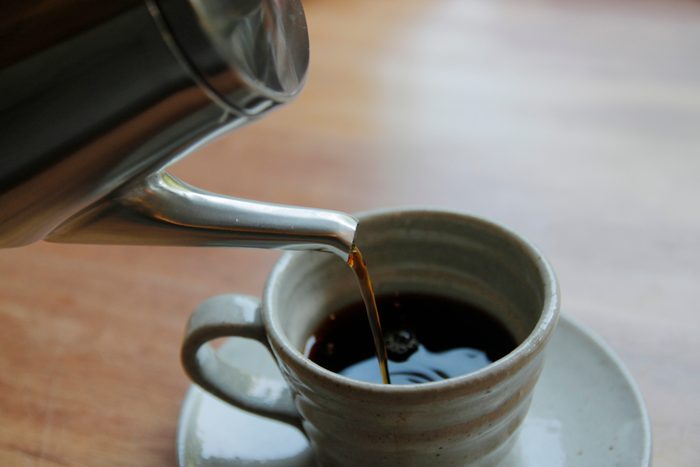
Rosacea triggers that can make symptoms worse
About 16 million Americans have rosacea, a chronic inflammatory skin disease (with no known cause) that is characterized by slow-developing facial redness, flushing, and/or acne-like papules or pustules (known as acne rosacea).
Many different things can trigger the symptoms of this skin condition, including common culprits such as sunlight and hairspray. The foods you eat also can be rosacea triggers. Here’s what to avoid in order to limit rosacea flare-ups.
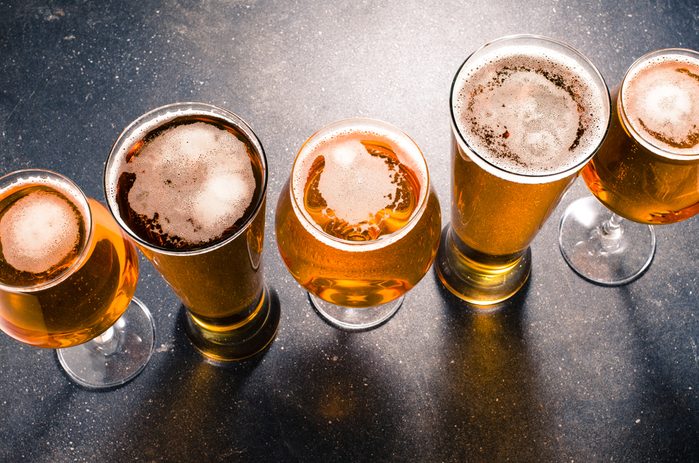
Alcohol
Alcohol, one of the most commonly reported triggers, is linked with rosacea flare-ups, according to patients surveyed by the National Rosacea Society.
Red wine seems to produce the greatest reaction. “Alcohol causes vasodilation—increased blood flow through the skin—which can make skin appear to be redder,” explains John E. Wolf, Jr., MD, professor and chairman of the department of dermatology at Baylor College of Medicine.
In fact, a 2015 study of twins suggested that drinking alcohol can increase the risk of developing rosacea in the first place, not just exacerbate the condition once you have it. (Don’t miss these other medical reasons your face is flushed.)
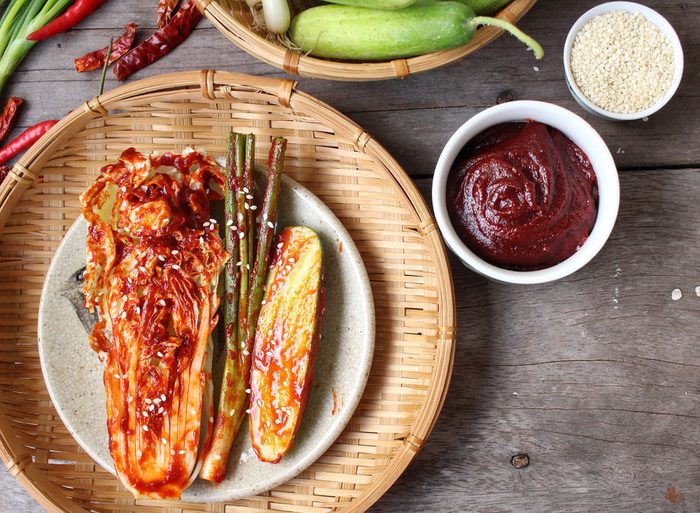
Fermented foods
“Some foods and beverages induce the blushing/flushing type of rosacea [while] others may induce the inflammatory papulopustular type,” says Richard Odom, MD, clinical professor of dermatology and former acting chairman of dermatology at the University of California, San Francisco.
While food triggers are subjective, fermented foods, such as sauerkraut, kimchi, and certain aged cheeses (blue cheese, for example), have been logged as a rosacea trigger for some patients. Dr. Odom recommends keeping a food diary to monitor symptoms and then eliminating certain foods to see if that makes a difference.
“Rosacea cannot be prevented, but it can be controlled with medication, avoidance of triggers, and proper skincare,” says Dr. Wolf. (Here are some rosacea treatment options.)
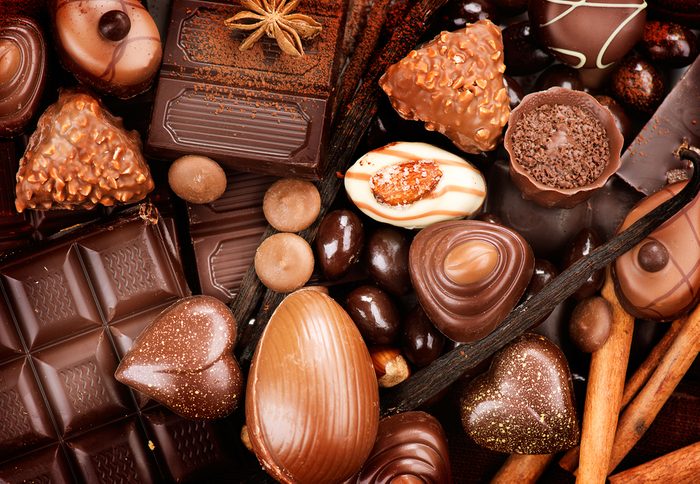
Chocolate
More than one in every five rosacea sufferers noted that chocolate was one of their food triggers, according to survey data from the National Rosacea Society.
The theory is that theobromine—the main alkaloid found in cocoa—dilates blood vessels and increases blood circulation, which contributes to skin flushing. Check out these home remedies for rosacea that help provide relief.
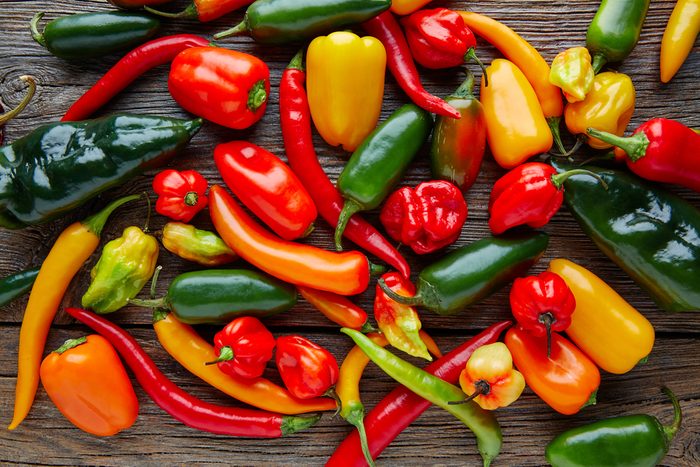
Spicy foods
Spicy foods, including hot peppers, Mexican-style foods, chili, and salsa, can provoke a rosacea flare-up, according to National Rosacea Society survey data. Spicy foods made symptoms worse in up to 75 percent of people with rosacea, per 2017 research in the journal Dermatology Practical & Conceptual.
Some researchers believe that there is a correlation between spicy food-induced rosacea flare-ups and gastrointestinal upset. Identifying triggers helped this woman find rosacea treatments that work for her.
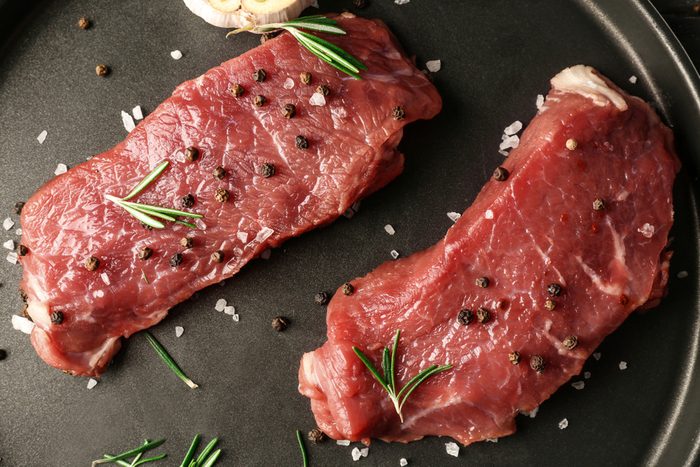
Marinated meats
Marinated meats are considered one of the less common causes for rosacea flare-ups—but it still impacts some people. According to a survey of 400 people with rosacea by the National Rosacea Society, about 23 percent of people see a negative change in their rosacea when they eat marinated meats.
Sulfites, which can be found in marinated meats, “may contribute to chronic skin…symptoms,” reported a study by the National Center for Epidemiology and Population Health at The Australian National University.
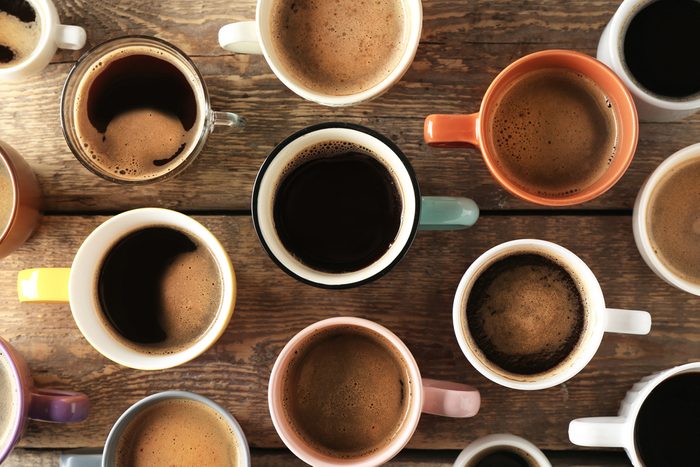
Hot beverages
According to 2017 research published in the journal Dermatology Practical & Conceptual, 33 and 30 percent of the 95 percent of people who have diet-related rosacea flares describe hot coffee and hot tea, respectively, as triggers.
A 2007 study of 24 patients conducted by researchers in the department of dermatology at Wake Forest University School of Medicine concluded that it is the thermal response of these drinks that exacerbates rosacea. Simply drinking a slightly less steamy beverage than hot coffee or tea could help prevent a rosacea flare.
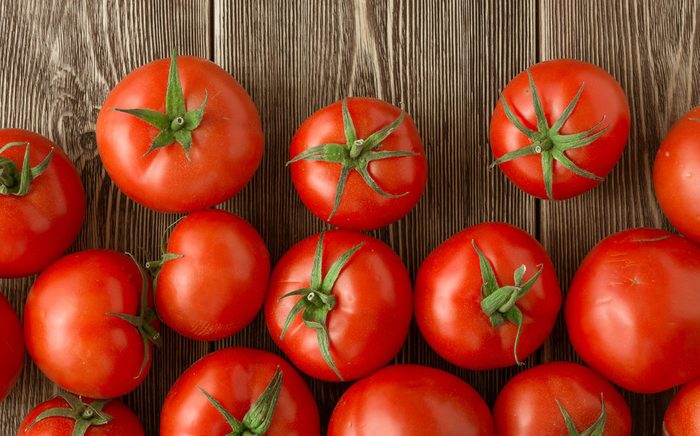
Tomatoes, shellfish, and other histamine-related foods
Some people with rosacea may be sensitive to foods high in histamine, such as citrus fruit and nuts, and/or histamine-releasing foods, such as tomatoes and shellfish. (And all acidic foods have been linked to rosacea.)
Taking an antihistamine prior to a meal of histamine-containing foods may lessen skin-reddening side effects. (Next, find out the best skin care for rosacea, according to dermatologists.)
